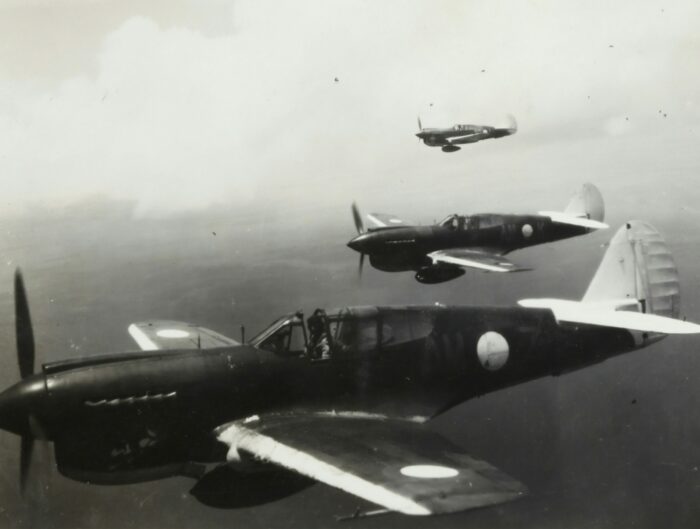The zombies rattle the high school’s doors or as close to it as something deceasedly lackadaisical can. Mostly, they’re just bumping into one another.
Coach Corregidor shakes his head.
“Even back from the dead, they’re pathetic.”
He hasn’t won a championship in nineteen years, and it’s worn on him.
In her squeaky voice, Ms. Mears says, “It’s not their fault. This is all new to them.”
“Student teachers,” he scoffs. “You’ll learn. What about you, Mildred?”
“Leave me out of it,” I tell him.
“Forty years, and that’s all you can say?”
“Forty years, and that’s all I’m going to say.”
He grins, face like a broken-in catcher’s mitt.
Meanwhile, Mr. Hicklemaw, the philosophy teacher, says, “I wonder if they know they’re dead.”
“Why would they? You don’t,” spiky-coiffed Ms. Gant zings. She teaches AP English.
Donny Galumphrey’s among the zombies confused as ever. (His Five-Cheese Turkey Surprise in my home economics class nearly burned the annex down). He bangs on the window with his head instead of his hands. It pops off and rolls away, bug-eyed and bewildered.
“What if they get in?” Mr. Siddler, Algebra II, mutters.
“I don’t think they know how to fall down anymore,” Corregidor says, “let alone open doors.”
“Even the electric handicap-accessible ones?”
We look at each other.
Corregidor whips his ballcap at the floor.
☙
I’m locking my zip tie around door handles.
“Faster, Mildred,” Corregidor says.
“Hush, Frank. I’m an old lady,” I tell him. Plus, he’s fumbling with his own zip tie. “Wouldn’t it be easier to turn off the breakers?”
“Which ones? Too bad they ate Hatch.”
Poor Mr. Hatch, the maintenance and groundskeeping man. What luck, the apocalypse happened on mowing day, and he moved even slower than zombies.
Speaking of which, a dozen have their faces pressed against the glass as I work. I try not to pay attention. Nonetheless, eyes are on me (well, not literally), and I look up. It’s Ryleigh Connors, expression vacant, mouth akimbo. Ryleigh, the grade-grubber, the class trophy chaser whose paramount goal in life was to tick off every box of achievement. Figures she’d be at the front of the zombie mob.
We reassemble in the cafeteria. Mrs. McPeevy has baked rectangular pizza. She doles out one-cup cartons of milk.
“We got enough food?” Corregidor asks her.
“How long will we be here?”
“How should I know?”
“Well, then how can I tell you if we have enough food?”
Mears is crying. She’s trying to hide it.
“There, there,” I say.
She blows her nose into my offered hankie.
“It’s Paul, my fiancé. We’re marrying next month.”
She’s studying to be a school psychologist, too, so naturally, she’s taking everything much harder than everyone else.
“I’m sure he’s fine.”
“The last time we talked, we argued.”
“Oh, couples fight. But they also make up.”
“He wanted chicken at the reception. I told him fish.”
I hug her to my bosom and pat her back. I whisper, “Chicken, dear.”
Hicklemaw says, “We might be the last humans alive.”
“If you call this living,” Gant opines. She’s chewing Doublemint and wearing earbuds, so I wonder how she can even hear us.
“Sunshine’s got a point,” I say. “How long can we stay here?”
Before anyone answers, glass crashes somewhere close—too close.
“Not as long as I thought,” Corregidor says and hustles us to the gym. There, reserving a Louisville Slugger for himself, he passes out equipment. Soon, Mr. Hicklemaw sports a goalie mask and nine iron. Ms. Mears and Mr. Siddler receive bows and arrows, while Mrs. McPeevy is content with shoulder pads and the oversized cleaver from her kitchen. Ms. Gant declines, favoring a pointy aluminum flag staff from Corregidor’s office.
“Now what?” I say.
Corregidor hitches up his faded chinos and does his best John Wayne.
“We’re going to have to fight it out,” he says. “There’s no food here, and it’s only a matter of time.”
He’s Burt Reynolds in Deliverance, Pat O’Brien in Knute Rockne, All American. He’s waited his whole life for this moment. I don’t spoil it by noting his fly is three-quarters down.
Alas, the battle does not go well.
It’s not the movies.
First, there are too many zombies. On this side of the glass, they’re bitey and writhing and everywhere. It’s like a bouncy house full of bear traps. Second, we’re inept. Hicklemaw swings a golf club as if he’s playing badminton. Siddler’s rate of fire—calculated for accuracy, not frequency—is one arrow every twenty-eight seconds. All 100 pounds of Mears gets carried off screaming. Gant, despite her hostile façade, freezes in the actual moment of truth.
McPeevy puts up a good fight. She’s admirably motivated, but her cleaver breaks off at the handle. Of course. Lowest bidder.
Only Corregidor and I survive.
By some miracle, we make it to the auto shop and a magnificent black and silver ’71 Mustang. The burnouts who restored it sure won’t need a car again. To my surprise, Corregidor hands me the keys.
He’s been bitten on the forearm.
“Mildred, I’m not going to make…”
I bash him with a crescent wrench. No time for this.
So, that’s how a blue-haired, worn-out home economics teacher a few months from professional expiration at Franklin D. Roosevelt High ends up blasting down the highway in a BOSS 351 Ford with a Hurst-shifter, four-speed transmission, and brand spanking new Michelin whitewall radials. My retirement gift to me. Oh, and the snub-nosed.38 Mr. Starker—as per rumors about the shop teacher’s legendary paranoia—truly did keep in the third drawer of his desk under many, many Penthouses.
I’m heading for the cemetery. After forty-eight years of marriage, I buried my Harry last year. I’m not sorry. Forty-eight years is enough. It would be just like the sonofabitch to come back now that I’m finally free. ◆
Art by Alex Kovacs


